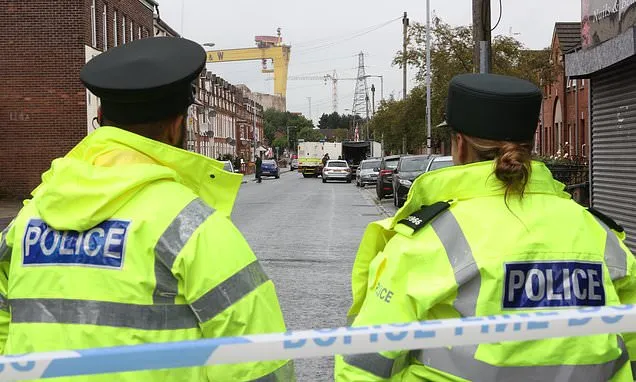No national security attacks were recorded in Northern Ireland in 2024, according to the latest security report.
It follows a mixed picture in recent years, with one national security attack recorded in both 2023 and 2022, none in 2021 and 2020, five in 2019, one in 2018 and five in 2017.
The Northern Ireland-related terrorism threat level for the region remains at substantial, that an attack is likely, after being reduced from severe in 2024.
However the Independent Reviewer of National Security Arrangements in Northern Ireland was critical of a lack of discussion among politicians, policymakers and the community around the national security situation.
Dr Jonny Byrne, who was appointed to the role last year, said security statistics and the assessed threat level "fail to adequately capture the transformation Northern Ireland has gone through since 1998".
Secretary of State Hilary Benn made a statement on Tuesday on the latest annual report which reviews the relationship between MI5 and the Police Service of Northern Ireland (PSNI) in handling national security matters, and whether it is in compliance with the 2006 St Andrews Agreement.
Mr Benn's written statement quoted the main findings of the latest report, which covers the period from January 1 2024 to December 31 2024.
It found compliance in terms of the five key principles, including the PSNI having had sight and access to all Security Service Intelligence relating to terrorism in Northern Ireland and being informed of Security Service counter-terrorist activities relating to Northern Ireland.
The report also found that an "overwhelming number" of "what are considered national security Covert Human Intelligence Sources (CHISs) in Northern Ireland continue to be run by PSNI officers under existing handling protocols".
It outlines general statistics, with the recording of one security-related death in 2024 in terms of the murder of Kevin Conway, compared with none in 2023, and six bombing incidents and 17 shooting incidents in 2024, compared with eight bombing and 33 shooting incidents in 2023.
There were also 23 casualties of paramilitary-style assaults, compared with 31 in 2023, and five casualties of paramilitary-style shootings, compared with 19 in 2023.
Meanwhile there were 67 security-related arrests under Section 41 of the Terrorism Act 2000, with nine persons subsequently charged, compared with 104 arrested in 2023 with 21 charged.
Dr Byrne expressed concern around an overreliance on these indicators.
"It is apparent that security statistics along with the approach to measuring the threat level, fails to adequately capture the transformation Northern Ireland has gone through since 1998," he wrote in his report.
"Since 2010, the threat level has fluctuated (in a small part) between severe and substantial yet the policing and security landscape in 2024 is very different and significantly closer to one envisaged through the peace process.
"There is a risk that Northern Ireland is solely defined through these indicators and that they have a significant influence on current and future security-related policy."
He said there is a "lack of agreement among politicians, policy-makers and the community as to what constitutes a 'national security issue'".
"There is also a reluctance to engage on the issue in a public way as most people align it with the conflict and part of our past," he said in his report.
"As a result, there are limited discussions about national security within the context of public health, the economy, climate change and the environment, migration and immigration, cyber threats and extremism."
Dr Byrne urged a "focused discussion as to what normalisation looks like and what security indicators are best placed to measure it and reflect the situation".
"My concern is that we use the current security indicators and threat level to justify why we cannot 'move on', which makes any further move to normalisation challenging," he said in his report.
